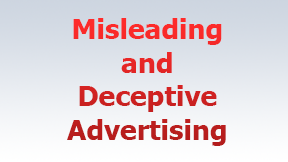 Just yesterday (as I write) I returned a call to one of my Blue Cross Blue Shield (BCBS) of Montana clients in Kalispell. I’ll assign him a fictitious name of Roger Jones. He told me that another agent from Acme Health Insurance called him to interest him in a Medicare advantage plan sponsored by Acme Health & Life. Acme is a large national insurance company that is spending a fortune in TV and direct mail advertising.
Just yesterday (as I write) I returned a call to one of my Blue Cross Blue Shield (BCBS) of Montana clients in Kalispell. I’ll assign him a fictitious name of Roger Jones. He told me that another agent from Acme Health Insurance called him to interest him in a Medicare advantage plan sponsored by Acme Health & Life. Acme is a large national insurance company that is spending a fortune in TV and direct mail advertising.
Roger continued by explaining that this agent called him multiple times. I asked Roger if he had called Acme or responded to any of their mailings. His response was negative. I queried Roger as to how this agent knew that he was one of the people receiving a non-renewal letter from BCBS. He had no idea.
At this point I explained to Roger some of the marketing rules that are explicitly covered in our annual agent recertification. Regarding marketing practices, The Center for Medicare and Medicaid Services (CMS) has made it abundantly clear that agents are prohibited from doing the following marketing practices for Medicare advantage (MA) plans and Part D prescription (PDP) plans:
- Cold calling on the phone
- Door to door canvasing
- Sending communications via blind email lists
- Approaching strangers in a health care setting such as a hospital cafeteria or at a pharmacy
During the conversation Roger also explained to me that a second agent had also called and said that he represented BCBS of Oklahoma and could put Roger in one of their Medicare Advantage plans. I explained to Roger that the only Medicare advantage plans he can sign up for are ones that are offered in Flathead county, period. An Oklahoma plan is out of the picture.
The parent company of BCBS of Montana is Health Care Service Corporation (HCSC) which is headquartered in Chicago. HCSC owns Blues in Illinois, Texas, New Mexico, Oklahoma, and Montana. This second agent could have purloined a list of Montana Medicare advantage members, maybe. Another possibility is that this whole Oklahoma thing was a ruse. It’s hard to say.
The Acme agent may have been fishing (cold calling) knowing that sooner or later he would reach someone with a non-renewed BCBS Medicare advantage plan. It’s possible that he somehow acquired an illegal list. We don’t know for sure.
These miscreant agents are like poachers. The poachers know the fish and game rules, but they ignore them and do illegal harvesting anyway for their own personal gain. These scumbag agents know the rules, but they flagrantly violate them in attempt to chase more commissions. Yes, they are commission chasers.
Just as state fish and game departments have established rules for orderly hunting and fishing, CMS has established rules for orderly marketing practices for MA and PDP plans. If you see someone suspected of poaching, the way to stop it is to capture a license plate number and a vehicle description and report it to the local authorities.
Here’s how you can put the brakes on these rule-violating agents. Ask for their name, phone number, and name of their agency. Then report it to the consumer affairs division of your state department of insurance.
Situation #2
I recently met with two related couples in Sanders County, Montana. I’ll call them the Smith’s and the Jones’. One spouse of each of the two couples has a non-renewed BCBS Medicare advantage plan. BCBS has exited many rural counties in Montana including Sanders. For those unfamiliar with Montana geography, Sanders County borders Bonner County (think Sandpoint) in northern Idaho.
The people initially reported to me when we set up the meeting in their home, that they had invited a third couple, their friends, John and Jane, to join us. John also has a non-renewed BCBS Medicare advantage plan.
Upon my arrival to the Smith’s residence, the Smith’s reported to me that John and Jane would not be coming. Here is what the Smith’s said.
John and Jane went to a seminar in Thompson Falls (put on by an Acme agent). John wanted to “get it over with”, so he signed up for an Acme Medicare advantage plan. They told us that the agent was giving away $25 Walmart gift cards.
I queried back, “You’re kidding!”
“That’s what they said,” the Smith’s said.
I asked, “Was the agent giving the $25 gift cards out to everyone or only to those who signed up for Acme’s Medicare advantage plan?” The Smith’s answered back, “We’re not sure.”
Explanation and a huge violation
It doesn’t make any difference if the gift cards were given to all attendees or just those that signed on the dotted line. The entire episode is another poaching violation. CMS has established explicit rules regarding gifts offered in a public seminar or meeting. Again, these rules are hammered into agents in our annual recertification.
- The gifts can have a nominal retail value of no more than $15.
- If multiple gifts are given, they can have a combined retail value of no more than $15.
- Cash or cash equivalents (gift cards) are strictly prohibited.
- The gifts are to be offered to all attendees, not just those that sign up for a Medicare advantage plan.
- Meals are prohibited, but light snacks are permissible.
The reason for CMS’ rules are quite obvious. They want to prevent gift-giving to be used as an inducement to get people to sign up for the agent’s Medicare advantage plan. Just like poachers, there are agents that choose to ignore the rules.
What to do about it? Just as in the first situation, these agents should be reported to the Consumer Affairs division of your state insurance department. In Montana, their phone number is (406) 444-2040.
It’s best to avoid these agents as they clearly demonstrate that the rules don’t apply to them. The real tragedy of the situation is that these miscreant agents are taking advantage of many vulnerable seniors who are confused by the entire Medicare maze.
More Agent Malpractice
Can you imagine going to a doctor, and without doing any examination, he/she writes you a prescription, charges you $225 and sends you on your way? I have now run across several situations where the plans being offered by these Acme agents would cost you hundreds of dollars more per year in drug copays compared to other more cost-effective options.
As just one example, a client of mine, Bonnie (fictitious), got conned into signing up for an Acme Medicare advantage plan sold by another agent. Bonnie has been with me for several years, and I knew that she takes several prescriptions. I asked her if the Acme agent ran her meds on Medicare.gov. She said no.
After checking on Medicare.gov, I found the dismaying results. The Acme plan will cost Bonnie around $500 to $550 more per year in prescription copays compared to two other alternatives. $500 per year is around $42 per month. This is the last thing Bonnie needs for her already tight fixed-income budget.
Sticking Bonnie with an extra $500 in bills for the sake of a $225 commission is an all too common example of agent malpractice. As mentioned above, these types of agents are nothing more than commission chasers.
Every profession has its bad apples, Unfortunately, the three situations I described above are examples of our bad apples. One of the easiest ways to determine if said agent is a bad actor is to ask the following question: What companies do you represent? If that agent says only Acme Health, or only Best Buy Health, or only XYZ Health & Life, it’s time to move on.
Representing only one company doesn’t mean that all such agents are bad actors, but it’s a warning sign. This is where they tend to reside. Find an agent that represents multiple companies. End
 TV advertising
TV advertising Annual Election Period (AEP)
Annual Election Period (AEP)